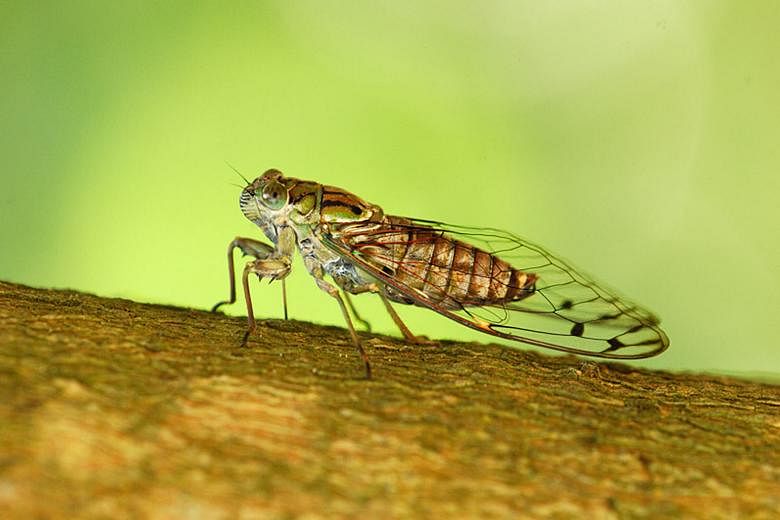A fungus that infects cicada contains chemicals similar to those found in hallucinogenic mushrooms, researchers have found.
The fungus, which is called Massospora, causes the winged insects with the insistent buzzing song to lose their limbs. Eccentric behaviour sets in: Males try to mate with everything they encounter, although the fungus has consumed their genitals and butts, said West Virginia University in a statement.
Despite their physical state, they continue to roam around freely as if nothing is wrong, giving other cicadas a dose of their disease.
"They are zombies only in the sense that the fungus is in control of their bodies," said Dr Matt Kasson, assistant professor of forest pathology at the university, and one of the study's authors.
Cicadas first come into contact with the fungus underground, where they spend 13 to 17 years before emerging to the surface as adults, Dr Kasson said. Within seven to 10 days above ground, the abdomen begins to slough off, revealing the fungal infection at the end of the cicada, he continued.
The impetus of the study came in 2016, when billions of cicadas ascended upon the north-east United States, said the university.
Two of Dr Kasson's students loved cicadas. One, Mr Matt Berger, convinced the professor to study the fungus. Another student, Ms Angie Macias, coined a creative, heavy-metal-sounding name for the cicadas: "flying salt shakers of death".
The team managed to examine enough infected cicadas from the wild to make the new discovery.
Dr Kasson and his team plan to resequence the genome of the fungus and analyse the gene expression in both healthy and infected cicadas to better understand the genetic aspects of the discovery.
"We anticipate these discoveries will foster a renewed interest in early diverging fungi and their pharmacologically important secondary metabolites, which may serve as the next frontier for novel drug discovery.
"I love (cicadas). They still scare me when they fall down my shirt or walk up my neck but I can appreciate something that spends almost two decades underground for six weeks of bliss, with or without the fungus."

